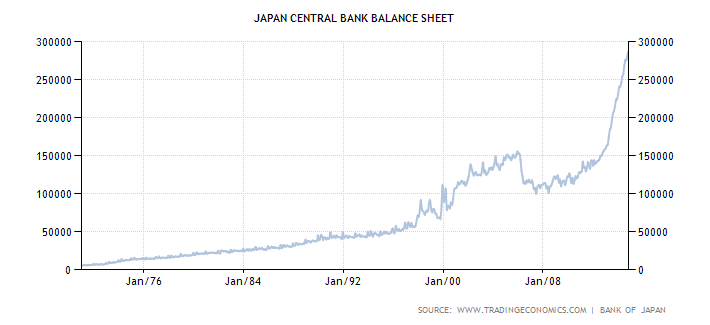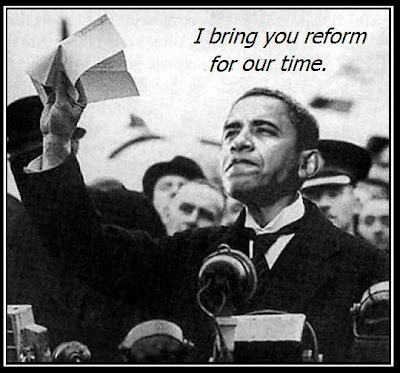"And this means that it is deeply, deeply wrong to think of rising gold prices when bond yields are low as some kind of symptom of monetary excess."
Paul Krugman, 10 September 2011
So don't think of gold as an indicator of monetary excess when it is going up, but when it is going down it can be used to prove your hypothesis of a lack of excess, as PK does in the new article cited below.
But there is some wiggle room between excess and hyperinflation, and degrees of excess, and I would agree if the argument he presented was well reasoned and well tempered, which is it not. It is just over the top, playing to the crowd. Well, that's show biz, and perception management.
I really would have preferred not to reference this article below, but I am afraid I must because it establishes one important point. It does not have much else to recommend it. And I have decided to avoid most other articles like this that deal in 'goldbuggery.' You know where I tend to place my focus, and name calling is what one does when their arguments are insubstantial. And then it becomes
de rigueur on both sides, and thought fails. No need to add to the hysteria.
In taking his victory lap for his economic theory in this manner, Mr. Krugman endorses the ability of gold to predict monetary dislocation and policy error. I would also add that it is a strong indicator of real interest rates. When they are negative they are good for gold, and when they offer a fair return, they are not. This is without regard to the
nominal level of inflation, Paul. But you knew that, or ought to have known that. But the key takeaway is that Krugman admits that gold does matter, and he watches it. And will use it in his data when it serves his purposes.
I think that is important. He would likely dodge this and say that it does not matter, but merely shows that some people believe that it does and therefore they buy it. When one deals in otherworldly economic models, they can make them do almost anything. The thing that economics does best is rationalizing as you wish after the fact. There is a paper, by the way, about
Gibson's Paradox by Larry Summers that PK can read if he wishes to see a more 'wonkish' linkage. Oh that's right,
he caught up with that in 2011.
But I guess it is ok to use it as an indicator that all is well on the monetary front when it is going down, as he does today.
I will take an aside, and say that the claims that monetization are not yet causing inflation proves nothing. All that proves is that one can give wheelbarrows of money to their friends to prop up their bad debts, as long as the friends keep the money in their own bank and trading accounts. The first result will be bubbles in financial assets, and the accumulation of wealth in a narrow segment of the target population.
But I do think that we have passed from the phase where gold is irrelevant and can be ignored, to the point where even 'very serious people' must take it seriously, and deal with it in some manner, with fear and ridicule.
Open interest generally does not RISE when prices are falling, and people are fleeing away from a particular investment vehicle, especially a commodity. When a 'long' position sells, it closes, and open interest, or the number of contracts, goes down. Open interest increases on falling prices when short selling is pressing a market lower against a steady demand from legitimate investment. But that is a detail, and not in his models.
As you know I only became interested in gold because of my study of currencies back in the 1990s. And I do not favor a return to a gold standard, although it is painfully obvious that the existing monetary arrangement for trade based on the dollar is as unstable as is the euro in Europe, and for many of the same reasons. The dollar regime has simply lasted longer, for some of its own scale and reasons.
And I do not favor austerity as a policy, and believe in the efficacy of stimulus when applied effectively and directly to a demand/employment condition of deadlock or stagnation brought on by a credit bubble collapse as we are in now. I am what would be called a
'progressive.'
But all the stimulus one can muster will not repair a system that is still broken and corrupt. It is like sending aid to some third world nation where it is diverted by the ruling warlords from ever reaching the people, save for some crumbs. And Paul Krugman, in his zeal for his cause, seems to miss this.
That is the FDR model, applying stimulus directly to creating jobs and increasing the median wage while
reforming the system. And that is most certainly not what we have today. We are bailing out the banks while allowing their abuses to go unpunished, and the system to be substantially unreformed, for the sake of 'the system,' or more properly
the status quo. And the status quo is quite happy with things as they are, because they are
gettin' paid as they say in the vernacular
.
I have said for quite some time that the outcome I see from this mistaken policy is stagflation, or as some may choose to call it, the new normal. It is the price that the public must pay to sustain a system of corporatism, historic inequality, and injustice.
Repressing dissent like the Occupy Movement, limiting people's investment options, and managing perceptions will only go so far. One needs an exit strategy from a period of sustained and pervasive policy error and corruption. And that must include real reform and change. The
new normal is not self-sustaining, but is an unnatural equilibrium that must be maintained by force, economic and otherwise.
Once again, a plea for civility. The future will be what it will be. And all the name calling and repression, financial or otherwise, all the violent language on both sides will only make things worse.
Chris Hedges is right on some critical things. This is tied in with the death of the liberal class as an effective bulwark against the rapaciousness and lawlessness of corporation and those who serve their interests, the rise of extremism, and the decline of the individual overshadowed by the rise of the state. In the parlance of the 1960's, the liberal class has 'sold out.' The price varies.
When the tide goes out you not only see who is naked, you see who they are naked with.
Willfulness can take many forms, whether it be a personal desire for riches, or power, or just to be 'right' at any cost, even through control frauds. It is when those desires override conscience and justice that things begin to go horribly wrong. It teaches by example, it is contagious, and it breeds.
So the only thing that this recent episode in the metals markets proves is that if you give the Banks enough money and regulatory latitude they can bend the markets to their will. And we already knew that. What is going on in the precious metals markets is apparent to those who look at the trading patterns, the volumes, and the open interest.
The only thing that is lacking is the exact reason, the motive for this, the disaster that has been averted, or the corruption and decay that is being concealed.
Markets are based to a large part on confidence. And when confidence breaks it is hard to get it back. And these jokers on Wall Street are stretching it to the limit, whether they realize it or not.
Gold Does Not Glitter
By Paul Krugman
April 15, 2013
So, the slide in gold has turned into a rout. As Joe Weisenthal says, this should be seen as really good news, because it offers strong evidence that the goldbug/inflationista view of the world — which says that we need to stop all efforts at monetary and fiscal stimulus lest we turn into Weimar — is, in fact, all wrong.
But Joe is, I think, deluding himself if he imagines that this will make any difference. After all, the inflationista view of the world has been repeatedly, devastatingly wrong on many fronts — interest rates, inflation, the effects of austerity. Has anyone other than Narayana Kocherlakota (who deserves big props for intellectual flexibility) actually changed his or her mind in response?
In fact, by and large the goldbug response to each failed prediction has been to claim that evil government officials are hiding the truth. Interest rates are low? That’s because the Fed is suppressing them. How can it do that, year after year, without causing runaway inflation? Oh, actually we have runaway inflation, but the BLS is faking the numbers (and independent measures, like the Billion Prices Index, are part of the plot).
Read the entire article here.




































